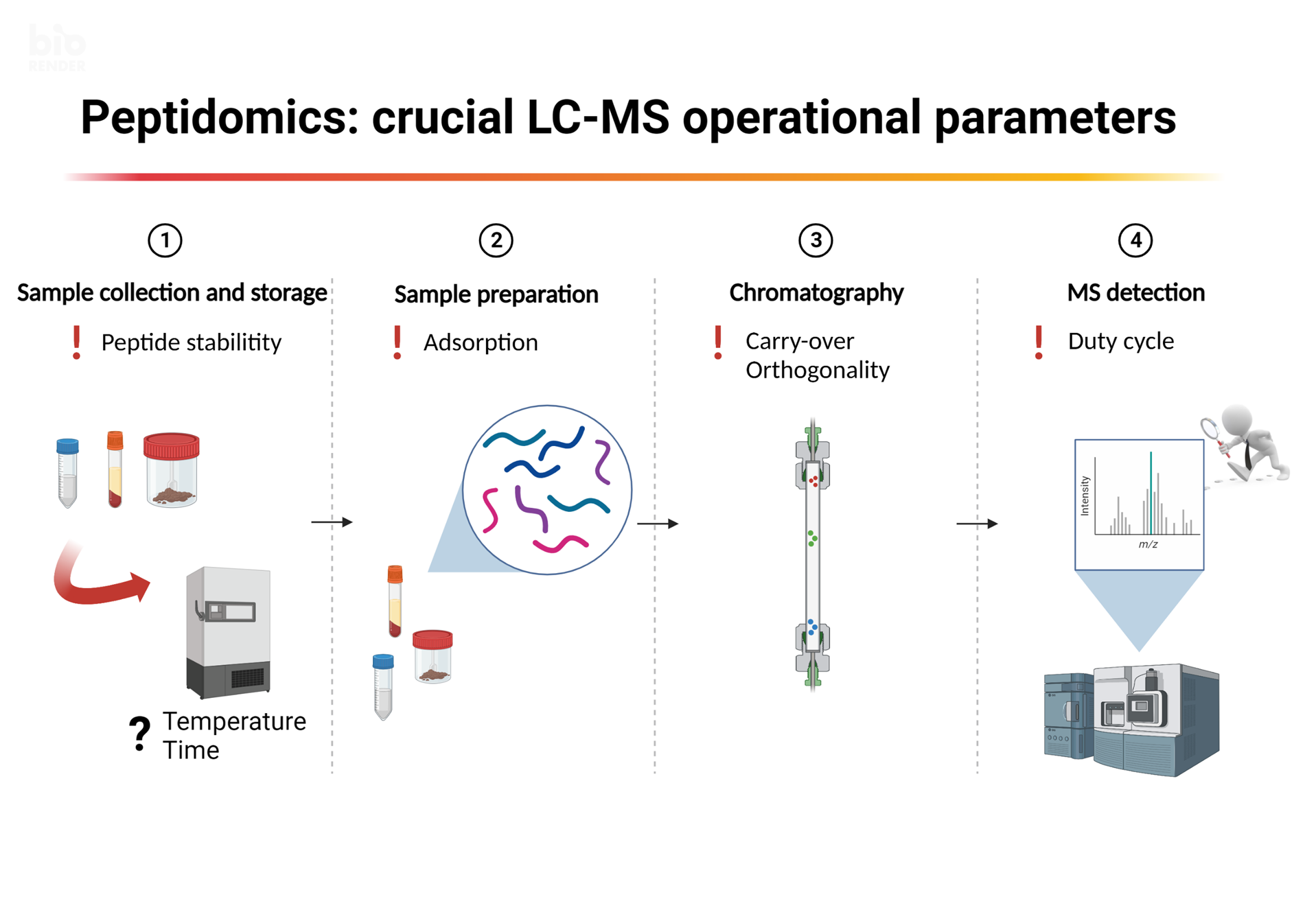Peptides have gained increasing recognition as a group of human bioactive compounds. At TRIGG, we investigate the effects of bacterial quorum sensing peptides on aging in the host. To facilitate the translation of peptidomic research from the lab to human applications, it is crucial to detect peptides sensitively and specifically, even at low levels in biofluids.
Therefore, in collaboration with the DruQuaR laboratory, we recently published a paper titled "Peptidomics: LC-MS Operational Parameters Do Matter." In this article, we highlight several frequently overlooked aspects of the LC-MS analytical process when studying peptides. We propose novel approaches for each of the following steps:
- Sample collection: obtaining and storing biofluids such as serum, feces or saliva up to the laboratory handling (sample preparation) should ensure no metabolization of the peptide measurand (yielding false negatives) or of proteins (yielding false positives).
- Sample preparation: to remove interfering compounds as well as to release peptides from the adsorbing matrix-components and to preconcentrate them; this is a crucial step which should assure analytical stability and adsorption-minimization.
- Chromatography: not only the separation power and orthogonality of the complementary systems is critical, but a careful characterization of the gradient-system, such as the starting conditions, need to be addressed as well because of worsened detection limits (yielding false negatives) or carry-over (false positives).
- MS detection: operational parameters such as duty cycle characteristics are critical in obtaining low-level, reliable results.
This article will contribute to the lab-to-human translation of peptidomic research. Read the article



